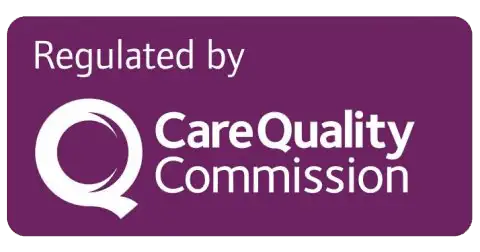Here at The Wellbourne Clinic, we often encounter individuals who’ve attempted to stop using alcohol or drugs independently, often by going “cold turkey”. Although this method might appear courageous or sensible, it involves significant risks, both physical and emotional. In this blog, we’ll explain why quitting cold turkey is dangerous, what can happen when you do it without medical supervision, and how The Wellbourne Clinic provides a safe, supportive alternative for lasting recovery.

What Does “Cold Turkey” Mean?
When someone decides to “quit cold turkey,” it means they’re stopping their alcohol or drug use all at once. They don’t gradually reduce their intake, nor do they seek any help from professionals or medical experts. For certain substances—particularly alcohol, opioids and benzodiazepines—this sudden stop can be a real shock to the system, potentially triggering severe withdrawal symptoms or even health issues that could be fatal.
Many people attempt cold turkey because they’re desperate for change, ashamed to ask for help or believe they can manage on their own. Unfortunately, these good intentions can quickly backfire.
The Hidden Dangers of Quitting on Your Own
At The Wellbourne Clinic, we’ve seen first hand the consequences of unsupervised withdrawal. Some of the key dangers include:
1. Severe Withdrawal Symptoms
Alcohol and drug dependence physically changes the brain and body. When you suddenly stop:
-
- Alcohol withdrawal can cause tremors, seizures, hallucinations, sweating, nausea and a potentially fatal condition called delirium tremens (DTs).
- Opioid withdrawal can bring on extreme flu-like symptoms: muscle pain, vomiting, diarrhoea, chills and insomnia.
- Benzodiazepine withdrawal can trigger severe anxiety, panic attacks, seizures and in rare cases, be fatal.
Without medical monitoring, these symptoms can become overwhelming or deadly.
2. High Risk of Relapse
Withdrawal is often so distressing that people return to substance use just to stop the pain. This can create a dangerous cycle: repeated cold turkey attempts, followed by relapse, often with reduced tolerance — raising the risk of overdose.
3. Mental Health Crises
Suddenly quitting can destabilise mood, worsen depression or anxiety, and in some cases trigger psychosis or suicidal thoughts. Without mental health support, people are left vulnerable to emotional collapse.
4. Physical Health Complications
Underlying health conditions — like heart disease, liver problems or diabetes — can worsen dramatically during withdrawal. Dehydration, electrolyte imbalances, or blood pressure swings can also become life-threatening.
Why Medical Detox Matters
At The Wellbourne Clinic, we believe recovery should never be a battle you fight alone.
Medical detox offers:
-
- 24/7 supervision by doctors, nurses and trained staff
- Medications to ease withdrawal symptoms and reduce risk
- Monitoring of vital signs and health complications
- Emotional and psychological support from day one
- A smooth, structured transition into rehab and therapy
Most importantly, detoxing in a medical setting gives people a real chance to focus on healing — not just enduring withdrawal.
The Wellbourne Clinic Approach
Our clinic offers a personalised detox plan tailored to each person’s medical history, substance use and emotional needs. We treat alcohol, opioids, cocaine, benzodiazepines, and other substances with a whole-person approach that combines:
-
- Safe, supervised detoxification
- Individual and group therapy
- Nutritional and holistic support
- Aftercare planning to maintain long-term sobriety
We also work closely with families, helping them understand the process and preparing them to offer healthy support after detox.
When Should You Ask for Help?
If you or someone you love is thinking about quitting alcohol or drugs, don’t do it alone. Warning signs that professional help is needed include:
-
- Daily or near-daily use
- A history of withdrawal symptoms when trying to quit
- Using substances to avoid withdrawal
- Physical or mental health problems related to substance use
- Prior failed attempts to quit
You Deserve Safe, Compassionate Care
Quitting abruptly might feel empowering, but true strength lies in recognizing when to ask for help. At The Wellbourne Clinic, we offer the medical care, emotional backing and expert advice you need to safely and successfully overcome addiction.
If you’re ready to take the first step toward recovery, we’re here to help. Contact The Wellbourne Clinic today and let us walk this journey with you.









